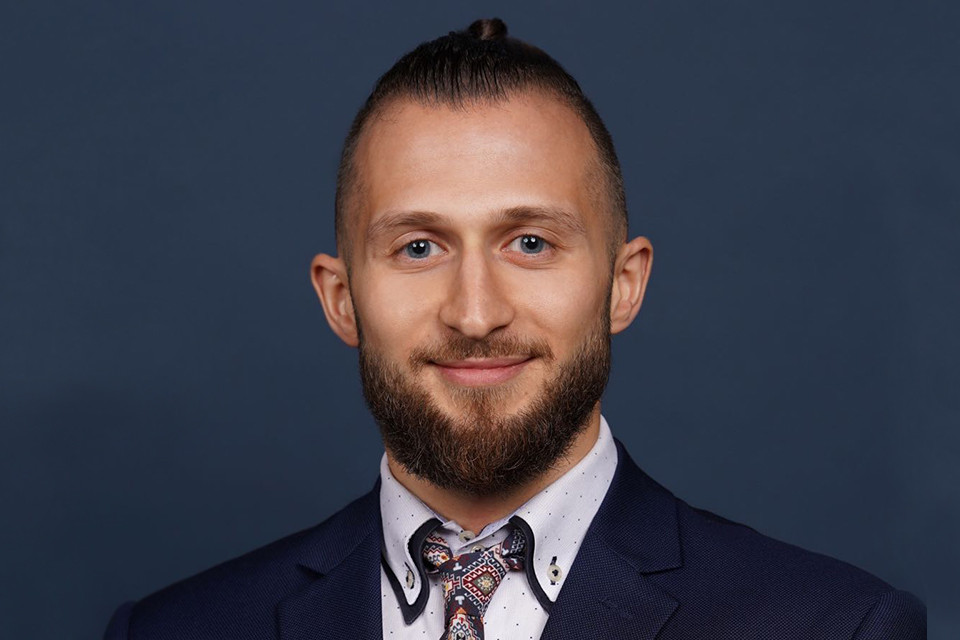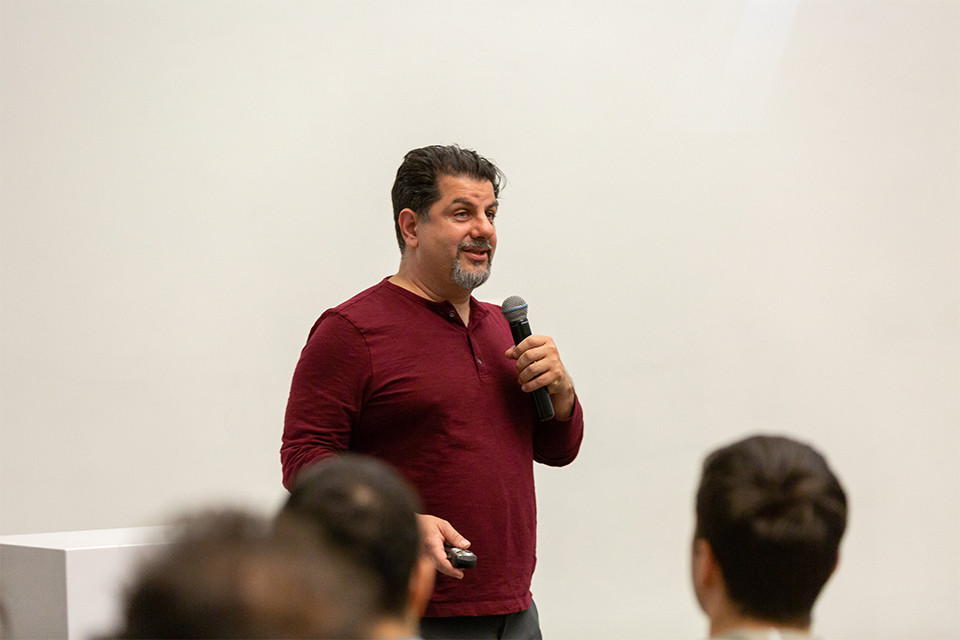-

Zareh Zurabyan
17:48 | 09.01.23 | Interviews | exclusive 58217
Zareh Zurabyan: There aren't that many companies in Armenia that have a fully developed product
Zareh Zurabyan is the head of eLabNext, which is a division of Eppendorf, a German company. eLabNext was founded in 2010 with the purpose of improving research processes with lab digitization. It elevates life science R&D laboratories with both software as well as support team. Zareh helps Armenian biotech companies and startups integrate into the eLabNext platform and introduce them to the global market.
He talked about his career, activities, cooperation with Armenian startups and global biotech trends with iTel.am.
Tell us about your background, how did you get interested in biotechnology?
I have a biochemistry and math background. The reason why I went into that is because everybody in my family is a scientist too. My mother's side are mathematicians and my father's side are physicists. So to make both of them happy I just went with the flow.
I did research in bioenergy working with anaerobic bacteria. Also I worked with bioreactors.
While I was working the first 3 months the lab manager left the company and I said that I’ll help to manage the lab before they hire someone new. So I started managing the lab and I happen to do a really good job. I really enjoyed doing it, developing relationships with vendors, saving a lot of money for the organization. Then I realized that research is not for me and I want to do not only a research aspect of things, but business aspect of things.
So this is when I made a conscious decision to pivot and I got my Masters from Harvard University in Business Management, and while I was getting the masters I also changed my job and started working for Eppendorf, the German company that acquired eLabNext and I’ve been working there ever since for the past 5 years.
Tell us about eLabNext activities and new initiatives related to Armenian biotech startups.
eLabNext is a digital lab platform that provides solutions like Electronic Lab Notebook (ELN) or Laboratory Information Management System (LIMS), inventory management solutions for laboratories in order for labs to optimize their efficiency. Our platform allows them to optimize everything in a secure, compliant environment. We provide our solution to all of the sectors whether it be pharma, biotech, academia, health care.
Digitalisation is the hot topic, so we help to find digital strategies for the lab. We understand their overall structure and infrastructure and then we help them to find their digital strategy for the years to come with our software as the focus point.
Most recently we released the marketplace that allows us to integrate third-party software into our software in form of plug-in or add-ons.
There are a lot of amazing tech companies in Armenia with strong AI background and I basically want to scope out those companies and to be able to integrate them into our software and present them to the world.
What issues do you face in the process of integrating Armenian companies?
There aren't that many companies in Armenia that have a fully developed product. There are a lot of amazing ideas, they have great algorithms, strategies and ambitions. However, when it comes to the actual meet and I ask “What is your software do and how it going to help the labs?”, the usual answer is “In everywhere”. This is where I see the difficulties. They help the labs in many ways, that is a true answer, however in a world of tech you really need to take a lane and run with it, and target.
Speaking with the companies, I really like the people, the potential of product, but I can’t fully understand how we are going to work together, because they themselves do not know what their specialties.
With that there are very good specialists and very good companies that we’ve come across. One of them has been Modicus Prime, which does microscope image analysis and they are integrated into our software and they are already helping many of our customers. We do have success stories that we use as an example in working with other companies.
What do Armenian companies need to be able to integrate?
Most of the founders here in Armenia are tech people themselves, so they are the coders themselves, and most tech people are not very social human beings, they are very introverted people and they are so passionate about their technology that their pitch becomes a discussion about how cool the technology is rather than what the solutions are that they are giving to the world. In the US most tech companies always have a business person that does the conversation and tech person doesn’t get involved at all. Please have a business person that represents your solution and always think about the bigger picture. What is the value that your company is bringing to the world.
How to develop biotech scene in Armenia and make it better? What kind of environment should be created and how will you contribute to this?
One of the biggest problems when it comes to biology and chemistry in Armenia is the lack of instrumentation. There are not many instruments to do actual applications including the universities, and the reason is because those instruments are very expensive. To set up one basic regular biology lab you need 3-5 million dollars.
For a biotech company to invest the research and development in Armenia is a big risk. In order for the actual research and development process and development to grow in Armenia there need to be overall infrastructure.
FAST foundation is working on the Life Science Incubator that is about to open up here in Armenia. It’s basically incubator space that is going to house for biotech companies that are going to do research and they are going to have an AI sector analysis within it and try to bring it to a mature stage for it to be marketed to Europe and US which is where most of the services come from.
We at the eLabNext are participating in this and we are sponsoring the Life Science Incubator, also with our product, expertise, capabilities, and our mentorship, knowledge to not only help these labs to organize and analyze their data, but also how to promote them into the market.
What global trends do you see in the field of biotechnology?
The biggest trend is the Personalized Medicine. When it comes to specific diseases then having a Personalized Medicine is what is going to kind of save the world, when you go and give your blood test and then you are able to have a cocktail of drugs created special for you. One of the biggest examples of that is the Gut Microbiome industry. The cultural food you have, your generic microbe, where you come from, the stresses that you live etc. all of that impacts how you look, feel and how you’re going to interact with drugs depending whatever issues you have.
We’re seeing much more investments into Personalized Medicine, understanding the human body and then being able to package that into medicine for specific individuals or minimum groups of individuals. There are many amazing companies that are focused on this in the world.
Nune Grigoryan talked to Zareh Zurabyan

17:29 | 24.09.25 | Articles
Jacopo Losso on Cross-Border Investments and Why Armenia Attracts Angels








